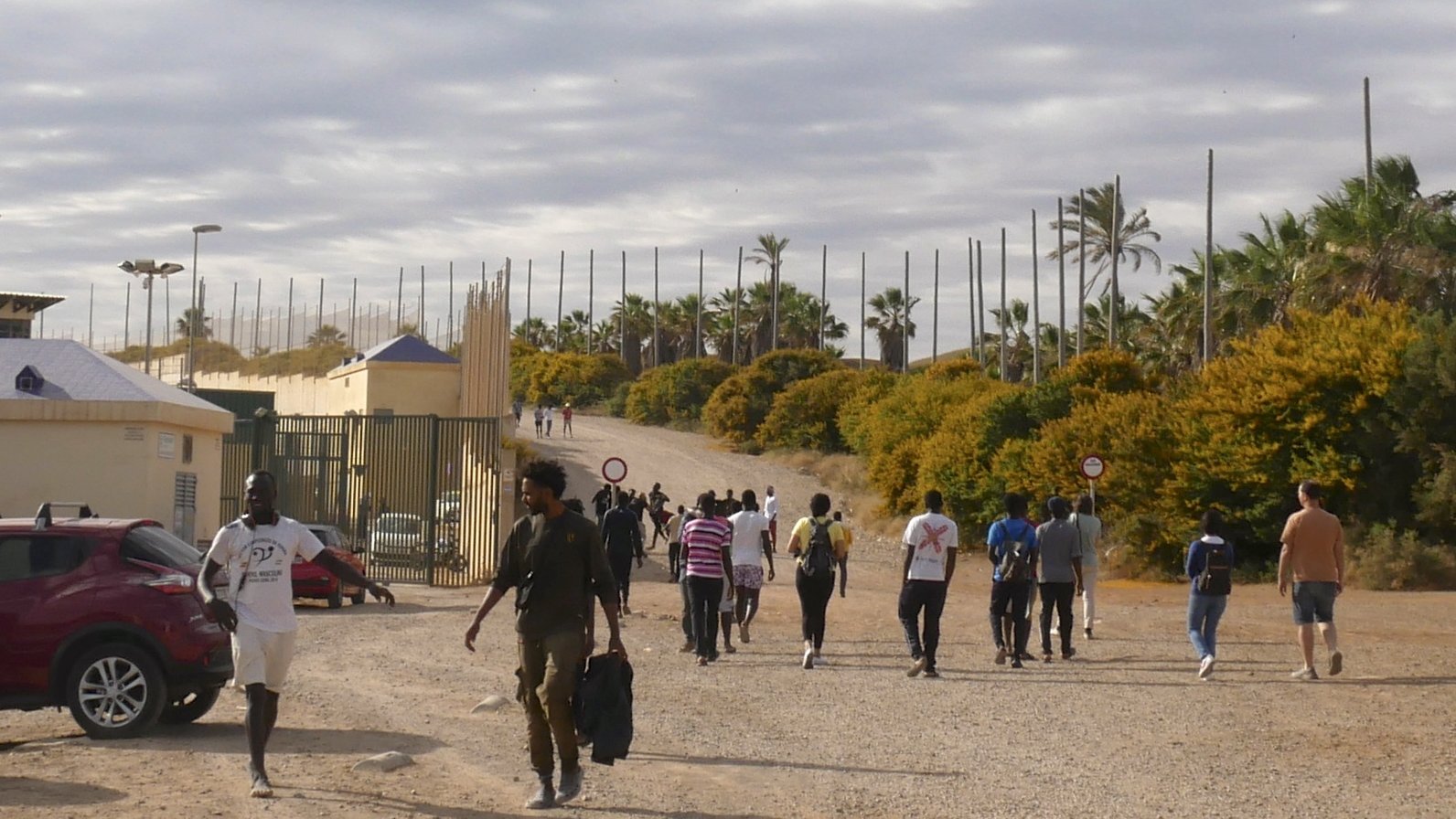Some 2,000 people tried to enter the Spanish enclave of Melilla illegally from Morocco on Friday, and at least 130 managed to enter the city, Spanish authorities said.
The 130 people who managed to cross into Spanish territory were transferred to a temporary reception centeraccording to the same official information.
The city authorities revealed that some 2,000 people were concentrated in Moroccan territory near Melilla and began to approach the border at 6:40 am, with a police device activated by both countries.
Even so, a group of 500 people managed to reach the fence that separates the two territories and began to destroy it with pruning shears.
It was a “perfectly organized and violent” group.as reported by the Delegation of the Government of Spain in Melilla.
According to the Spanish authorities, 130 people entered the city, all men and apparently of legal age. The Spanish enclaves of Ceuta and Melilla are the only land borders of the European Union with the African continent (with Morocco, in both cases).
This is the first attempt to massively violate the borders of the enclaves since the normalization of diplomatic relations between Madrid and Rabat.last March, after a year of tensions.
The crisis between Morocco and Spain was related to the stay in Spain in April 2021 of the leader of the Saharawi independence movement Polisario Front, to be treated after an infection caused by Covid-19.
The Polisario Front, supported by Algeria, contests the Moroccan occupation of Western Sahara.
The diplomatic tension between Madrid and Rabat triggered the entry, in mid-May, of more than 10,000 immigrants in Ceuta, thanks to a relaxation of controls by Morocco.
Bilateral relations were normalized last March, after the Spanish government publicly assumed that the proposal presented by Rabat in 2007 for Western Sahara to be an autonomous region controlled by Morocco is “the most serious, credible and realistic basis for the resolution of this dispute”.
Western Sahara is a former Spanish colony occupied by Morocco for 47 years, in the context of a decolonization process.
Spain has long argued that Morocco’s control of Western Sahara was an occupation and that a UN-sponsored referendum should be the way to decide the territory’s future.
Sánchez, for his part, visited Rabat and the two countries made a joint declaration in April that normalized border traffic and bilateral relations.
Source: Observadora
